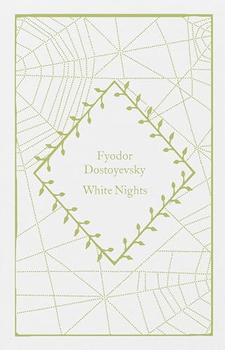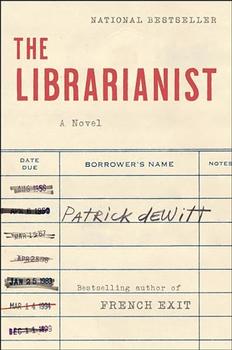Summary | Excerpt | Reviews | Beyond the book | Read-Alikes | Genres & Themes | Author Bio

In 2024, the short story White Nights, an early Dostoevsky work, became popular on BookTok, a corner of TikTok in which people discuss and recommend books; users—many of whom posted videos of themselves crying after reading the story—called it a heartbreaking tale of unrequited love and loneliness. I watched some of these videos after reading White Nights and found the story to be both better in quality and less emotionally affecting than the TikTok users made it out to be.
Like many Dostoevsky works, it's very funny; the narrator, a friendless and unnamed 26-year-old man, is a sympathetic but also satirical and somewhat silly figure. When the story opens, he feels sad and hurt that everyone in St. Petersburg is leaving for a dacha (summer cottage), while he has nowhere to go and no one to go with:
"From early morning an astonishing melancholy had started to torment me. It suddenly seemed that I, so alone, was being abandoned by everyone—that everyone was deserting me. Well, of course, anyone is entitled to ask: who is 'everyone'? Because I've been living in Petersburg eight years now and I've hardly been able to make a single acquaintance."
As he goes about his solitary life in the city, he recognizes other denizens but never makes friends:
"I almost struck up a friendship with a certain little old man, whom I meet every blessed day, at a certain hour on the Fontanka…Should it happen that I'm not at the same place on the Fontanka at a certain hour, I'm positive that he would be crestfallen…The other day, when we had not seen each other for two whole days and met on the third day, we almost reached for our hats, but, thank goodness, we came to our senses in time, lowered our hands and passed each other by in sympathy."
One night, the narrator meets a young woman named Nastenka, after he notices her crying and then chases off an old man who tries to approach her. She's grateful for his protection and notices that he's shaking. "Yes, it's true, I'm timid with women, I'm nervous, I won't deny it," he tells her. "[E]ven in my dreams I never guessed that I would ever talk with a woman." Women like timidity, she tells him. They make plans to see each other the next night—but just as friends. She warns him not to fall in love with her and that he should keep their meeting a secret: "It will be better for you that way; although from a distance it will look like a love story." Even without the vloggers' spoilers, we know this is a recipe for unrequited love and heartbreak.
We soon learn more about Nastenka, who lives with her overprotective grandmother. Nastenka is in love with a man who moved to Moscow but promised that he would come back for her in a year; now, that year has passed and her lover is back in St. Petersburg, but she has not heard from him, leaving her feeling abandoned and ruined by love. Feeling sorry for Nastenka, the narrator offers to help track down her lover, even though doing so becomes painful for him, as he grows to love her.
For his part, the narrator has only been in love before in his imagination:
"And all I dream of every day is that at long last I will finally meet someone. Oh, if only you knew how many times I've fallen in love like that!..."
"But how, with whom?..."
"Why with nobody, with an ideal, with the one I see in my dreams. I create entire love stories in my dreams."
Alone and friendless in real life, the narrator's elaborate daydreams make him "an eccentric, a ridiculous person!" as he tells Nastenka. The dreamer has no life in the "real world," or rather the life he lives in the real world is "a poor, pitiful life," and so he lives only in his head.
Just as Nastenka's extreme situation—her grandmother literally pins together their dresses to keep Nastenka out of mischief—feels like something out of a fairytale, the narrator's exaggerated pathology and the satirical way he's written make him somewhat cartoonish. These extremes, however, also make the story entertaining, with humor that helps offset the pathos.
For all the story's entertainment value and its affecting passages about loneliness, I thought that the relationship at the heart of White Nights—and the narrator's love for someone whose heart belongs to someone else—fell a bit flat; perhaps the story was too abstract, a bit too fabular. But the story's central relationship does offer insights into figuring out what and how much to reveal to others in order to live honestly but also not hurt or burden them, and about the consequences when you inevitably fail. "Why is it that the very best person is always hiding something from other people and is quiet about it?" Nastenka wonders aloud about why her former lover won't tell her how he feels. "Why not say frankly and immediately what's in your heart, if you know you're not speaking idly?"
But acknowledging what is in your heart is not always that simple, as Nastenka and the narrator discover. Nastenka's admissions to the narrator that she could maybe love him if she didn't already love another raise the narrator's spirits and then immediately crush them. "Why isn't he—you? Why isn't he like you? He's not as good as you, even though I love him more than you," she tells him, cruelly. Later, the narrator, having sworn he won't fall in love with her, erupts and admits his true feelings, although she does not reciprocate his love. In a more delicate story, this back-and-forth of painful self-deception and equally painful honesty might read like a dance between characters, a negotiation; here, it's more like a demolition derby, full of explosions of feeling. As themes go, the agony of unrequited love is less relatable and interesting to me than the torment of weighing lying to yourself versus hurting another with your honesty. In White Nights it turns out there is no real comparison, for the dishonest life is not worth living and requires escaping it as soon as you get the chance.
![]() This review
first ran in the January 29, 2025
issue of BookBrowse Recommends.
This review
first ran in the January 29, 2025
issue of BookBrowse Recommends.

If you liked White Nights, try these:

by Tony Tulathimutte
Published 2025
From the Whiting and O. Henry–winning author of Private Citizens ("the first great millennial novel," New York Magazine), an electrifying novel-in-stories that follows a cast of intricately linked characters as rejection throws their lives and relationships into chaos.

by Patrick deWitt
Published 2024
From bestselling and award-winning author Patrick deWitt comes the story of Bob Comet, a man who has lived his life through and for literature, unaware that his own experience is a poignant and affecting narrative in itself.
Your guide toexceptional books
BookBrowse seeks out and recommends the best in contemporary fiction and nonfiction—books that not only engage and entertain but also deepen our understanding of ourselves and the world around us.